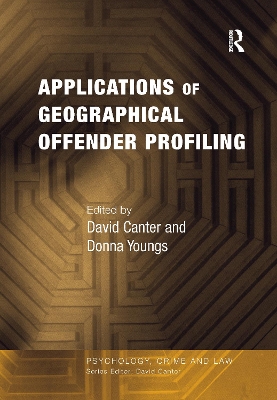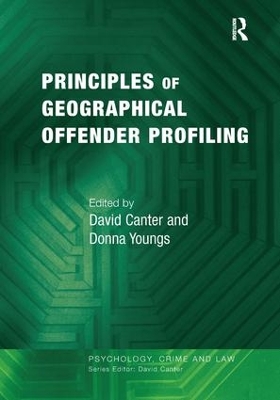Psychology, Crime and Law
4 total works
Serial killing drove the initial fascination with 'profiling' and was the focus of the earliest 'offender profiling' works. In more recent years this 'offender profiling' task has become set within and defined by, the more scientifically rigorous frameworks of Investigative Psychology, which has identified the theoretical and conceptual challenges that are inherent to the profiling process. Central to these for serial killings are questions about the particular styles of serial killing behaviour and how these relate to distinct sets of offender characteristics. The papers collected in this book are organised around the core Actions-Characteristics framework, moving from the general to the specific. Thus the first section explores the range and diversity of serial killing behaviours (the Actions) - starting with an exploration of the various manifestations of serial killing, before moving to a more detailed consideration of the different psychological styles for committing this crime. The second section focuses on the offenders, examing the individuals who become serial killers, and then examines the different patterns of offending behaviour, as well as the psychological processes that underlie these relationships.
Many law enforcement agencies are now analyzing where a crime is committed, to develop predictions on the offender, their location and other factors that could help with the investigation. Known as Geographical Offender Profiling (GOP), this approach relies on a combination of principles and methodologies drawn from many different disciplines, including psychology, geography, criminology and forensic science. This book brings together a cross-section of the major papers published in the field of GOP to explain the scope and application of GOP in different criminal contexts. For the first time some widely quoted but difficult to obtain 'classic' papers have been published together with an introduction that provides an up-to-the-minute context and an extensive bibliography of the most relevant publications in this burgeoning area of study.
The psychological processes underlying rape and murder are discussed in these new studies. Recent findings on serial killing, rape and murder are examined with implications for understanding the experience of victims, varieties of offender and the conduct of investigations.
Principles of Geographical Offender Profiling
by Professor David Canter and Dr. Donna Youngs
Published 28 April 2008
Geographical Offender Profiling (GOP) is the term that has emerged for the examination of where offences take place and the use of that examination to formulate views on the nature of the offender and where s/he might be based. As such, it has become the cornerstone of 'offender profiling'. By its nature, GOP bridges psychology, geography, criminology and forensic science and is of academic interest to all those disciplines as well as practical significance to police investigators. This book brings together a cross-section of the major papers published in the field that lay out the concepts and foundations of this area - including some widely quoted but difficult to obtain 'classic' papers - with an introduction that puts the papers into an overall context and a concluding extensive bibliography of the publications relevant to this rapidly growing area.


